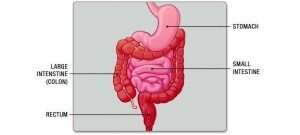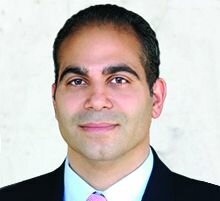 An anal fistula is a tract that connects the inside of the anal canal to the skin adjacent to the anus. Simply opening the tract and allowing the area to heal up can treat most fistulas. However, when fistulas run in a course that involves a significant portion of the anal sphincter muscle, a more complex approach is necessary. One option is to perform an endorectal advancement flap procedure, whereby part of the rectal wall above the fistula is mobilized and sutured over the hole. Another option is to use the relatively recently introduced solution known as an anal fistula plug.
An anal fistula is a tract that connects the inside of the anal canal to the skin adjacent to the anus. Simply opening the tract and allowing the area to heal up can treat most fistulas. However, when fistulas run in a course that involves a significant portion of the anal sphincter muscle, a more complex approach is necessary. One option is to perform an endorectal advancement flap procedure, whereby part of the rectal wall above the fistula is mobilized and sutured over the hole. Another option is to use the relatively recently introduced solution known as an anal fistula plug.
Our colorectal department offers a new minimally invasive repair of anal fistulas by means of the anal fistula plug (AFP). This repair is a unique alternative to traditional fistula surgery.
Request your consultation today.
Call us at 888.512.2312 to schedule an appointment or:
More About the Procedure
This procedure involves plugging the fistula with a device made from small intestinal submucosa. This is usually done with the patient under a general anesthetic. With the AFP, the fistula tract is repaired without cutting the sphincter muscle; thus, the risk of incontinence is minimized. The fistula plug procedure requires minimal recovery time and patients can go home the same day as the procedure.
There are several AFP designs, but all essentially do the same thing. The plug is made of collagen and is inserted into the tract and secured in position. The fistula plug is positioned from the inside of the anus with suture. Tissue surrounding the plug grows into the collagen, thereby closing the defect permanently.
Benefits of the Anal Fistula Plug
- High percentage of success and greater efficacy shown from early use.
- Minimally invasive procedure.
- Sphincter-saving procedure minimizes risk for postoperative incontinence.
- Suturable biomaterial offers more staying power than fibrin glue.
Our surgeons have experience in the AFP procedure and can therefore share with you the benefits and risks associated with surgery.
The Importance of Follow-Up Care
After your procedure, it is important to see your doctor regularly in order to ensure you are healing properly. Our team of surgeons will advise you on how often you should come into our office for your follow-up visits. At the Fissure & Fistula Center of Excellence, our patients are important to us, including your recovery and satisfaction with your results.
Frequently Asked Questions
Q: What happens to the plug after the fistula heals?
A: Once the healing process is finished, the plug is completely incorporated into your own tissue.
Q: What happens if the fistula plug falls out?
A: In the event that the plug falls out, this may mean that the sutures holding it in place either broke or dissolved. You will want to contact your surgeon immediately to so that a plug can be re-inserted.
Q: How long will the drainage continue after my procedure?
A: It is not uncommon to have drainage 2 to 4 weeks after the AFP has been placed. Drainage may even continue for up to 12 weeks as the plug incorporates into your tissue and the fistula tract heals.
Q: What are some of the risks associated with the fistula plug?
A: As with all operations, there are a number of risks. These include infection in the short term and non-healing of the tract in the longer term. Your surgeon will be able to discuss with you these risks, as well as any alternatives.
Q: Is there a chance of incontinence with the fistula plug?
A: Incontinence is unlikely since the placement of the anal fistula plug does not require cutting of the sphincters.
How Can Our Colorectal Surgeons Help You?
Our surgeons collectively have decades of experience in treating fistulas. Through extensive training and education at some of the nation’s top universities, our doctors can provide a wealth of knowledge in helping patients select the best treatment plan for them. If you would like to gain insight into your options, contact our Los Angeles colorectal surgeons today.
Please read this article on anal fistula plugs from the US National Library of Medicine.
Next please review the symptoms of anal fistulas here.









